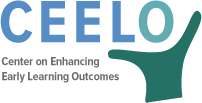Do you spend your time effectively? Early education leaders are pulled in a number of different directions every day finding it difficult to complete all the tasks on their “to-do” list on time and to the standard they expect of themselves. In the 7 Habits of Highly Effective People, Stephen Covey offers seven principles to effective time management. These habits include:
- Be Proactive–Focus time and energy on things within your circle of influence.
- Begin with the End in Mind–A clear purpose regarding what and who you want provides a clear vision of desired direction and results.
- Put First Things First–Organize and manage time based on your purpose, values, roles and priorities.
- Think Win/Win–Win-win focuses on solutions that are mutually beneficial to both parties.
- Seek to Understand, Then to Be Understood–Listening to understand allows you to hear different perspectives.
- Synergize— Synergy is the interaction or cooperation that produces a combined effect greater than the separate parts.
- Sharpen the Saw–Take the time to renew yourself physically, emotionally, mentally and spiritually in order to increase your capacity to handle challenges.
These habits exist at the intersection of knowledge, skill, and desire, and all must be present for the early education leader to effectively manage time and demands.
Effective time management for early education leaders relies on these habits but most specifically on Putting First Things First. It is easy to fall into the trap of getting caught up in unimportant things while neglecting the larger life priorities. Covey offers a time management matrix which assists with identifying the level of importance and level of urgency in tasks or daily activities. Important tasks contribute to the mission, values and high priority goals. Urgent tasks insist on action and are more pressing for others. These daily activities can be broken down into 4 quadrants and sorted by urgency and importance. Quadrant 1 is a quadrant of necessity and often is referred to as “putting out fires.” Quadrant 2 focuses on quality and personal leadership and contributes to long-term solutions. Quadrant 3 is the quadrant of deception taking time away for phone calls, inconsequential meetings or other distractions. Quadrant 4 is the quadrant of waste.
Time Management Matrix (Covey, 1995)
Effective leaders focus their time and energy “above the line,” exercising discipline to minimize urgent but unimportant distractions. The most effective early education leaders spend more time on activities in quadrant 2 focusing on building relationships, long-range planning, and preparation.
Resources
- The 7 Habits of Highly Effective People
- 7 Habits in Just 6 Minutes (video)
- Covey Habit #3 – put first things first
Activities

